Bobby Fischer - The Enigma
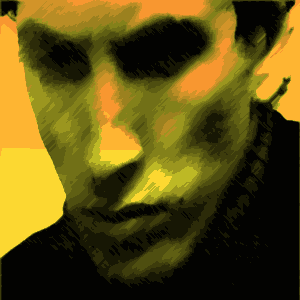
Bobby Fischer
He was born in Chicago, Illinois but moved to New York at the age of six where he grew up. It was around this time that he learned to play chess. He was deeply fascinated with chess right from the start and gained in playing strength quickly.
By the age of 15, he was a GM and a US champion, the youngest player ever by that time to have achieved these feats. He was also the youngest player to compete in an Interzonal Championship and later a Candidates Tournament. He won every US Championship he ever competed in, including a clean sweep in 1963-64 (11-0).
Fischer won the World Championship against Boris Spassky at the age of 29 in stunning fashion. In a life and chess career that showed some remarkable parallels with Paul Morphy a century earlier, he withdrew from chess and to fair extent from life while at the height of his powers. You can upload articles and games from Bobby's life and times.
Young Bobby

Bobby Fischer was a child prodigy
They learned the rules from the instructions and Bobby became engrossed with the game. He immediately began to spend all of his time playing chess. He read every chess book he could get his hands on.
A local chess master called Max Pavey was giving a simultaneous exhibition in 1951 and young Bobby was on one of the boards. He was beaten relatively quickly but must have done enough to impress Carmine Nigro. He was the President of the Brooklyn Chess Club and invited Bobby to join which he did.
Early Promise
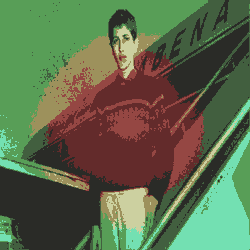
Bobby Fischer showed promise from a young age
He won the United States Junior Chess Championship in July 1956 and still remains the youngest winner. He finished joint 4th in the US Open, a senior event. Fischer got a wild card to enter the Lessing J. Rosenwald Trophy Tournament, normally reserved for the top 12 US players. He finished joint 8th with 4.5/11.
It was during this event that he played his now infamous Game of the Century, a breath taking victory against Donald Byrne. Everyone in American chess knew Bobby Fischer now.
US Champion

Bobby Fischer was the youngest ever US Open champion
Fischer was not expected to get higher than the middle of the pack. Many people thought that it would be a fight between Reshevsky and Bisguier for the title. Bisguier himself predicted that Fischer would "finish slightly over the center mark".
Fischer was working off a different script and caused a huge upset. He won the tournament, a point ahead of Reshevsky, to become the youngest ever US champion. He was still only 14. That record still stands today. His victory earned him the title of International Master and qualified him to play in the Interzonal Championship. He followed up later in the year by winning the 1957 US Open.
International Fortunes
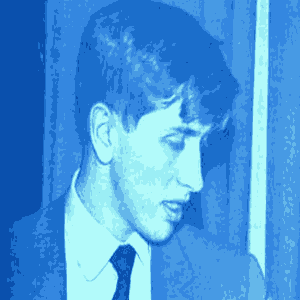
Bobby Fischer hit the world scene at a young age
Again no one expected too much from a skinny 15 year old. Most experts thought he would gain a lot of experience from it but not much more. His time would come later.
Fischer had much different ideas and told the reporters as much. "I can draw with the grand masters, and there are half a dozen patzers in the tournament I reckon to beat", he said.
And then he backed it up by doing exactly that. He finished up with 12/20 to take joint 5th. This made Fischer the youngest ever GM and the youngest ever qualifier for the Candidates Tournament.
Steady Rise to Prominence

Bobby Fischer had his best years from 62-72
The 1959 Candidates Tournament was held in three Balkan cities. Bled, Slovenia along with Zagreb, Croatia and Belgrade, Serbia were the venues.
Fischer would face seven others in a league format. The eight competitors would play 28 games, four against each opponent. He did quite well, finishing 5th out 8 with 12.5/28. He lost all four games against eventual winner Mikhail Tal and this would prove decisive. Tal beat Mikhail Botvinnik the following year to win the World Championship.
Courting with Controversy
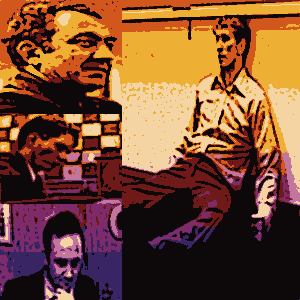
Bobby Fischer became a more and more controversial figure as time went on
The Candidates Tournament did not go so well as Fischer finished 4th behind Petrosian, Geller and Keres. In what would become his familiar outspoken disposition, Fischer accused the Soviets of fixing results with pre-arranged draws designed to freeze him out.
The ongoing war of words convinced FIDE to change the format in future Candidates Tournaments. After that the eight qualifiers would play straight knock-out instead of league, eliminating the potential for collusion.
He's In, He's Out
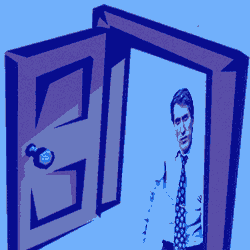
Bobby Fischer began what would become a habit of withdrawal
He then strangely pulled out of the Interzonal Championship in Amsterdam, Holland later that year. This decision meant he was out of the race for the World Championship in 1966.
He continued with his red-hot form in North America with successive US Championships in 1965/66 and 1966/67 but largely ignored FIDE and the scene at world level for a couple of years. He finished 2nd in the 1965 Capablanca Memorial despite playing his games via teleprinter. He did compete in the 1967 Interzonal Championship in Sousse, Tunisia. But in what was by now customary behavior, he withdrew while leading the event in a spat over scheduling. Fischer would miss out again due to his own intransigence.
Road to Reykjavik
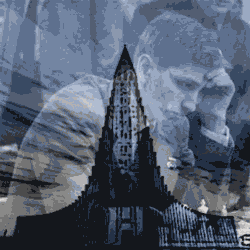
Bobby Fischer was determined to finally seize the World Championship
He had further success in 1970, unstoppable in the 1970 USSR vs the Rest of the World Match, the 1970 World Blitz Championship, the 1970 Rovinj/Zagreb Tournament and the 1970 Buenos Aires Tournament.
He had withdrawn from the 1969 US Championship after yet more wrangling with tournament organizers. Later when it was clear he was on a mission to win the World Championship, Pal Benko stepped aside and allowed Fischer to compete at the 1970 Interzonal Championship held in Palma, Majorca in Spain in his place. Fischer won the event by 3.5 points, a record, playing with extraordinary form. He won 15 games, drew 7 and lost only 1.
The utter dominance continued at the 1971 Candidates Tournament. He demolished Mark Tamainov in the Quarter-final and Bent Larsen in the Semi-final, both on a 6-0 score line. In the final, after early resistance, he took out former champion Tigran Petrosian, +5-1=3, with Fischer winning the last four games. Boris Spassky was the last Soviet standing in his way. Fischer would battle with him for the World Championship.
Match of the Century
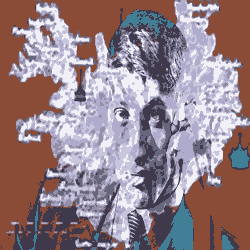
Bobby Fischer played in the Match of the Century
Fischer was keen to strike a blow to the Russians here in the Cold War Era in a field they had long dominated. He had accused them in the past of closing ranks on the rest of the chess world and now he wanted to prove that he was greater than all of them. He wasn't merely taking on one man, Boris Spassky. He was taking on the entire Soviet chess empire. The US establishment wanted their man to humble the Soviets, the USSR were just as eager to see their champion slap America down.
The two players were styled as gladiators, each representing his civilization against the nemesis, in a proxy war. Chess was under the global spotlight like never before or since as the two protagonists faced off in what would be dubbed the Match of the Century.
Spassky vs Fischer
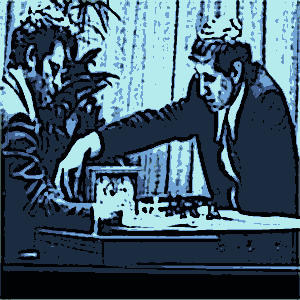
Bobby Fischer triumphed against Boris Spassky in the Match of the Century
Spassky got off to a great start in the first game playing as White. In a drawish Bishop ending Fischer blundered inexplicably. He got his Bishop trapped and lost it for only two pawns. Spassky won the endgame and was 2-0 up in the match when Fischer forfeited the second game in a row over cameras and a subsequent no-show.
But after that Fischer, who had come into the match on a recent 20 game winning hot streak found his form. He won five of the next eight games to lead by three points after 10 games. The second half of the match was very tight with mostly draws. Fischer won 2 further games to Spassky's 1. The final score was +7-3 =11. Fischer was the champion.
Resigning the Title
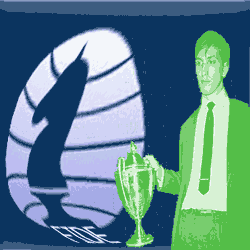
Bobby Fischer resigned as World Chess Champion in 1975
Fischer sent a telegram to FIDE outlining three non-negotiable proposals for the match against Karpov. Firstly, the winner would be the first player to win 10 games, draws would not count. Secondly, there would be no limit to the number of games played. They would simply continue playing until one of them banked 10 wins. Finally, in the event of the score going to 9-9, the match would be declared a draw, the match stakes would be split evenly and Fischer would remain the champion.
FIDE accepted the first proposal but rejected the remaining two. In response Fischer sent another telegram informing FIDE that in rejecting his conditions they had effectively ruled him out of the World Championship of 1975. In the same message he formally resigned his tenure as FIDE World Chess Champion.
Later Years
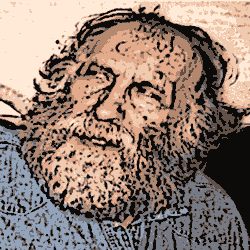
Bobby Fischer left the United States in body and in mind
Fischer spent 20 years in obscurity with occasional interruptions caused by controversial statements. Then in 1992 he staged a Revenge Match of the 20th Century against Boris Spassky. He won the match +10-5=15. It was his last foray into professional chess.
He had a bitter dispute with his own country the United States due to his outspoken criticism of American policy and unpaid taxes. He was also in trouble for playing the match against Spassky in Yugoslavia at a time when it was illegal for US citizens to do so because of the political situation there in '92. He eventually had his US citizenship rescinded and took up Icelandic citizenship where he lived out the remainder of his life.
Legacy of Fischer

An early Bc4 was almost a signature move for Bobby Fischer
He was an authority on the Ruy Lopez Opening, contributing ideas in several lines within it including the Exchange Variation. On the Black side he developed lines for the Najdorf Variation in the Sicilian and the King's Indian Defense.
His significant contributions to chess theory are put in the shade by his services to chess away from the board. Before Fischer, chess was rightly or wrongly seen as an obscure pastime played by stuffy old men and socially inept youths. It had no media coverage worth talking about, it was totally irrelevant. With his rebellious persona allied to his chess genius. Fischer made chess cool.
Share Your Bobby Fischer Stories and Games
The problem with biographies is you must concentrate on breadth and can never go as deep as you would like. You can mention the major events in someone's life but can't allow yourself to indulge in intricate detail. Bobby Fischer was one of a handful of players who have a case for being arguably the greatest chess player of all time. He also courted controversy throughout his life. He reached his peak during the Cold War Era and was the US hero taking on the Soviet chess juggernaut. There must be countless anecdotes and interesting accounts of different episodes and incidents throughout his days. Some of these accounts give us an insight into what kind of man he was, what made him tick. Or if you prefer you could annotate one of his games, reflecting his genius over the board. Do you know of an interesting story or game from the life of Robert J Fischer? Share Your Bobby Fischer Anecdotes or Games With Us.
Bobby Fischer Entries Left by other Lapocites
Click below to see Bobby Fischer Entries by other Lapocites...
Fischer Chess Innovations Not rated yet
Bobby Fischer (March 9th 1943 - January 17th 2008) the Grandmaster was no doubt the chess legend and realistically no one has succeeded him yet. Undefeated …
When Bobby Fischer Made Chess Cool Not rated yet
The first game started on July 11, 1972, which incidentally was my thirteenth birthday. This was considered the Battle of The Cold War, and to the American …
Back To Iceland Not rated yet
This incident gives an inside view of the life of the Greatest Chess player Robert James “Bobby” Fischer. It took place in March 2005 in Iceland which …
Fischer Chess Legend Not rated yet
Robert Bobby Fischer is one of the most renowned chess players of all time. The most important thing that he won was the World Chess Championship in …
Moving On
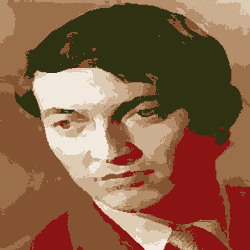
Anatoly Karpov
He became a national hero in the US and a role model for dissent against the establishment worldwide. He put chess on the map in a way that no one else could and since Fischer the image of the game has changed irrevocably.
His successor as World Champion could not have been more different in terms of personality. Fischer's temperamental volatility would be replaced by quiet, unassuming self assurance. That self assurance was derived from a concrete, rock-solid positional game. That game belonged to Anatoly Karpov.






